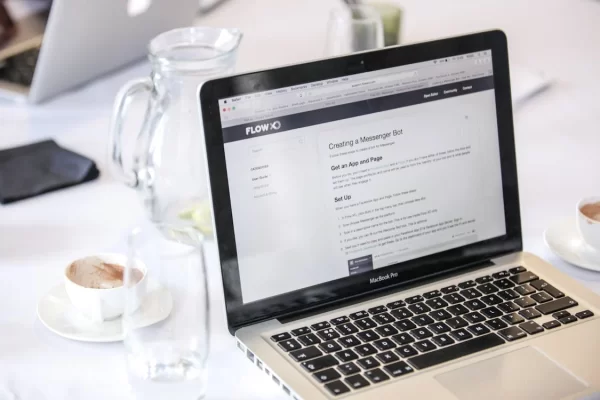Today’s web is controlled by a handful of tech giants that determine how you’re shown online and how your content is used. These companies influence your online presence, often deciding what information pops up when someone searches for you and how your content is used for their own purposes, like advertising and data analytics. This control can lead to misrepresentation and make it hard to own your digital footprint.
Control Your Narrative
Having a personal website helps you control your narrative. When someone searches for you online, you want to be the first result they see. This prevents confusion with others who might have a similar name or organizations with a shared name. There might be news articles or blog posts related to your name that have nothing to do with you. A simple one-page website with contact details and a short summary can already rank high on Google when someone types in your name. If there are specific search results you want to rank high, link to them on your website. This helps both your webpage and the linked source rank higher.
Ownership
Social Media vs. Personal Website
You might think, “I have LinkedIn/Facebook, why do I need a website?” Good point. Social media has its advantages, such as building a network and staying in touch with connections. However, there are significant downsides to relying solely on social media platforms:
- Content Usage: Social media platforms can use your content in any way they want, including for advertising and sublicensing. This usage can continue even after you delete the content.
- Dependency on Platform Policies: You are completely dependent on the platform’s policies and algorithms. Profiles can be deleted or constrained if they don’t align with policies, even without any infringement. Moreover, platforms can be taken down or lose popularity, making your invested time worthless.
A personal website makes you independent of these issues. The level of independence depends on how you set up your website. Here are three main ways to do this, with increasing levels of independence requiring more technical skill:
1. Personal Page on a Page Builder
Using a page builder like WordPress.com provides more ownership and flexibility than a social media account. This approach is user-friendly and requires minimal technical skills. You still have more control over your content compared to social media platforms.
2. Externally Hosted Website
An externally hosted website involves using a third-party service to host your site on their servers. This means you don’t need to worry about maintaining the hardware or infrastructure; the hosting company takes care of that for you. One popular option for creating and managing your externally hosted website is WordPress.org.
3. Self-Hosted Website
A self-hosted website requires having a server and running a webpage from it. This setup provides full ownership of your website and its content, but it requires technical skills to set up. Downsides include potential difficulties in securing the site against cyber attacks and the need for backup solutions to maintain uptime during technical problems.
Conclusion
Claiming your name on the web with a personalized website is a smart move. It allows you to control your narrative, ensures ownership of your content, and offers varying levels of independence based on your technical skills and preferences.


Leave a Reply